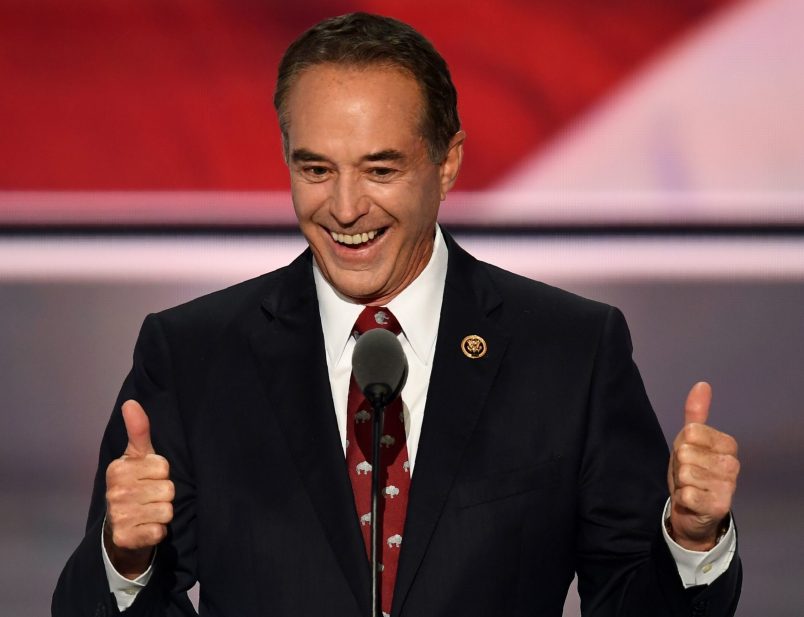On the Chris Collins story, most of the attention has focused (quite understandably) on the fact that Collins allegedly gave family members a heads up on the news that would lead to the stocks collapse a few days later. That makes perfect sense. But there’s another quite interesting part of the story, which is how and when those other members of Congress bought in.
Here’s the trend for the stock from late 2016 to late 2017.

You can see over on the right where in June of last year the stock suddenly collapses. But look at that big spike six months earlier. Over about eight weeks the stock price went up almost 200% and then promptly dropped back down to where it was.
What happened?
Well, we know at least some of why. But not all.
Rep. Tom Price got nominated to be HHS Secretary and in the course of that scrutiny for the job it was revealed that he’d gotten a sweetheart deal on Innate Immunotherapeutics stock. That churned up press attention to the stock. Price was nominated on November 29th.
One big thing that happened is that on January 13th The New York Times published an article about the stock. It was an interesting article. The gist was that the stock itself was pretty sad and unremarkable. But it had big time support from the Trump administration. Collins was the biggest shareholder – first endorser of the new President-Elect, a member of the Transition and a member of Congress with a lot of juice. Tom Price owned stock too. And he was about to be Secretary of HHS, which owns most federal health care policy. So the stock may be lame but it’s got big administration backing.
The company’s CEO got asked about what was up with the stock at the end of January and … well, this is what he said.
“Since December, the shares have surged, in large measure due to the collateral publicity we have received in the US,” Innate’s Wilkinson said. “We have no visibility over what is behind it,” suggesting it may be day traders, attracted by the volatility.
Day traders … Okay. Now here’s another detail. On January 10th, Hill reporter Mike DeBonis overheard Collins telling someone on his cell phone that he was making friends back in Buffalo big money.
OH in the speaker's lobby: 'Do you know how many millionaires I've made in Buffalo the past few months?' –@RepChrisCollins on his cellphone
— Mike DeBonis (@mikedebonis) January 10, 2017
He doesn’t explicitly mention Innate. But again, let’s look at the chart. I think we know what he was talking about. Though the stock would soon fall back down, On January 10th Collins already made millions on the run-up.

Okay, so now let’s zoom in and see when the members of Congress bought in.

So there’s a giddy run up for what all actual reporting seems to agree is a fairly iffy or at best highly speculative stock. The Times article clearly contributes to the run up. But Mullin gets in the day before the Times article with what his disclosure form listed as an investment between $100,000 and $250,000. The others come in over the course of three days more than 10 days later.
Again, they all say they were just following the market and doing their own research. It had nothing to do with Chris Collins. Well, lots of reporting says Collins was pitching colleagues on it hard. And it seems like quite a coincidence that 5 members of Congress, all Republicans bought in. This seems to bear a lot more scrutiny.
The other question is, what happened on January 25th and 26th? Was this just market weirdness? People got spooked? At least my review of the news reporting over these days doesn’t provide any clear indication of what would make the stock’s value go down. Clearly the Reps came in at the peak. Within a week they’d already lost about half their money. If they had inside word to buy, it was not good advice.






